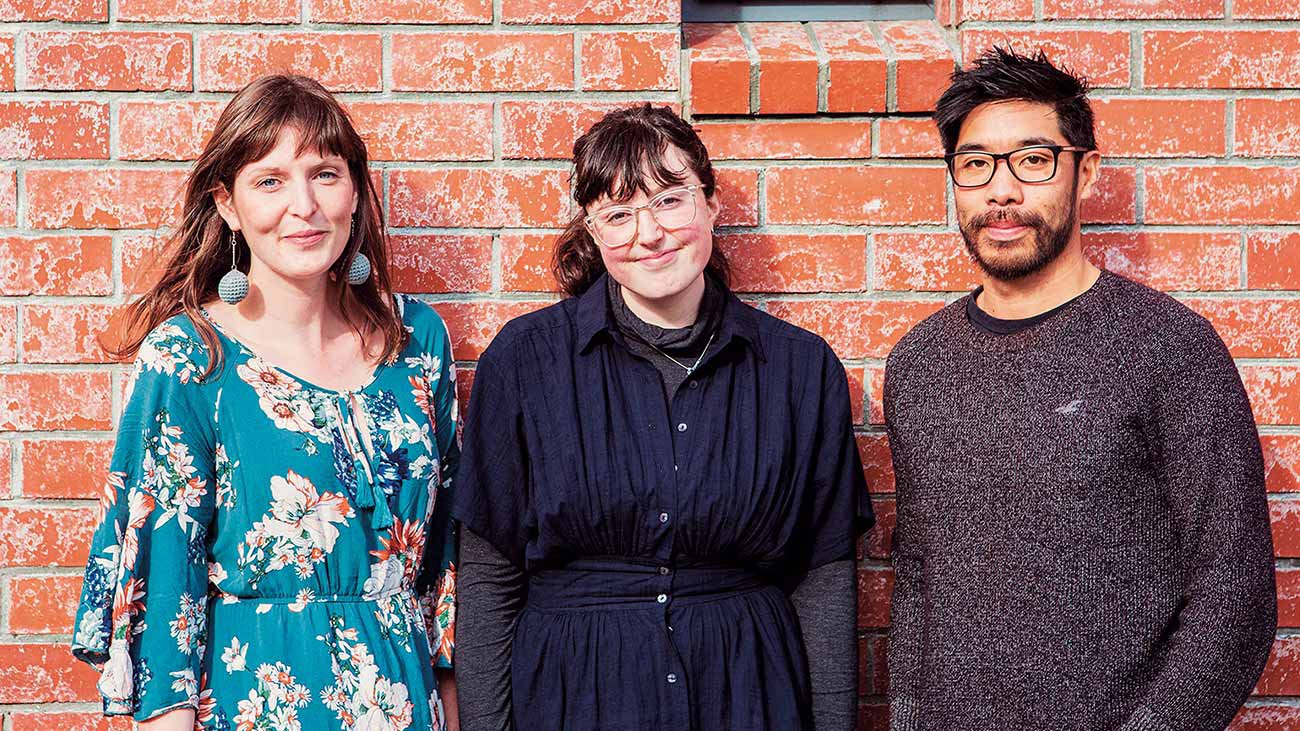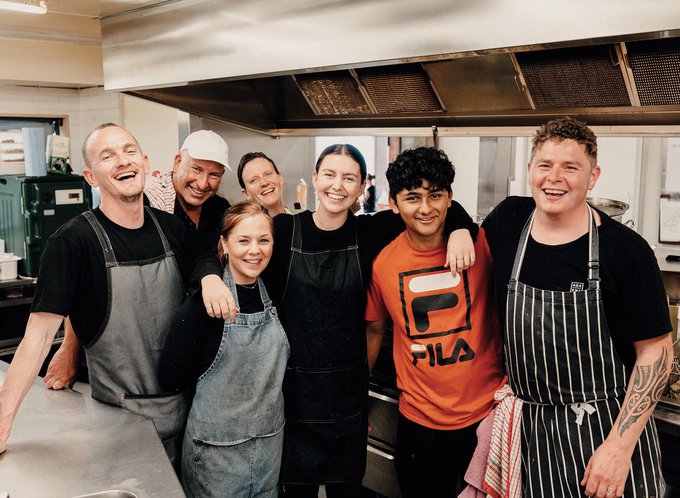A new initiative from the Sustainable Business Network, supported by MAS, gives businesses the tools they need to find responsible suppliers.
Holly Norton is an expert in procurement, but she’s the first to admit the term doesn’t inspire excitement in most people.
“People think it’s a technical, scary thing, but procurement literally means a business buying something. That can be anything from a pen to electricity to a jet plane.”
“When we talk about sustainable procurement, we’re adding a lens of what are your values as a business, and how do you reflect that in your spending?”
As Sustainable Business Network (SBN) Senior Project and Partnership Manager, Holly is leading a MAS-supported project to help small and medium businesses make more sustainable choices when it comes to the suppliers and producers they work with.

The SBN Sustainable Supply Chain Toolkit team: L–R Holly Norton, Emma Webley, and Jonathan To
Cutting through the jargon
Businesses want to make sure they are shopping sustainably but need help sorting through the jargon and greenwashing, Holly says. As the project lead of the Sustainable Supply Chain Toolkit, she’s helping demystify the process.
The project was born out of discussions SBN held with big businesses in 2020. Many wanted to know what best procurement practice looked like, especially in New Zealand’s business landscape.
She and her team worked with these businesses to help them understand their own priorities to learn what kind of questions to ask suppliers, and to share tools and resources.
While this initial programme was successful for large businesses, Holly says SBN was also hearing from small and medium enterprises (SMEs) who were looking for support that suited their smaller size and budget.
“In order to create proper systems change, we needed to distil this knowledge into something that SMEs could use. These businesses told us that everything needed to be in clear, easy-to-understand language and that tools need to be free and easy to use.”
It’s this demand that led to Holly and her team coming up with the Sustainable Procurement Toolkit. The project has been supported by businesses like MAS and was also part of the NZ GovTech Accelerator, a three-month programme that helps develop solutions to the biggest challenges facing local and central government.
Aligning practice with priorities
The Sustainable Procurement Toolkit takes users through a values assessment looking at what matters to each business and identifying any positive steps already taken towards becoming a more sustainable and responsible organisation. This could be things like offering flexible working or the living wage or minimising water use.
Users are then prompted to identify any positive steps they have already taken towards becoming a more sustainable and responsible organisation. The toolkit distils these actions in language that’s easy to share in formal settings, like wording for contracts - what Holly calls “big business speak”. It also provides suggestions on next steps or more resources to look at to become even more sustainable in those areas the business values.
The whole process takes about 15 minutes, says Holly. “In that time it’s helped you figure out where you’re at, see what you’re awesome at, and see where you can go. And it’s given you some really simple information written in the right language that’ll help you win contracts. And it’s not a one-time thing – as you do more work, you can add to it and build up that profile.”
Holly says there are thousands of existing resources on sustainability, so the toolkit also links users to the best existing tools and databases. This could be anything from a tool to measure carbon output to a guide to implementing the living wage.
“We’re hoping the toolkit will help users access what’s already out there and distil this complex information into something that makes it super easy to understand what you care about.” Because the toolkit is free for SMEs, it will have flow-on effects both up and down the supply chain, says Holly.
“Businesses are facing increasing pressure to talk about their sustainability. Sharing this free tool with their suppliers becomes a really easy next step to get them on board with sustainable procurement.”
Holly Norton
Piloting with MAS Members
The toolkit is currently being built and tested, with a plan to pilot it with businesses from April 2022 and officially launch in early 2023.
MAS has a long-standing relationship with SBN, says Holly, and shares its commitment to sustainability, so it was a natural fit to partner with SBM on the toolkit.
“MAS put their hands up to be part of the pilot, so we’ll be opening the toolkit’s pilot up to some MAS Members around the middle of this year. The businesses involved get to help shape systems change for New Zealand as well as getting a bit of private procurement consultation out of it,” says Holly.
MAS Head of Brand and Partnerships Nicola Airey is excited to support the project.
“As consumers, we’ve all become more aware of our buying decisions in recent years, so it’s natural that businesses are starting to behave similarly. Sustainability is something that MAS is really committed to, and we’ve made some big changes to our own approach to procurement in recent years.
“Sharing this toolkit with our Members is a great way to get more businesses thinking about how they can reflect their values in the way they shop,” says Nicola.
Know someone who might enjoy this?
Good living
See all-
March 2021
In review
-
March 2021
Manaakitanga – more than just hospitality
-
March 2021
Land, sea and myth: Revisiting Hawke's Bay
-
July 2021
Breaking bread at Everybody Eats



